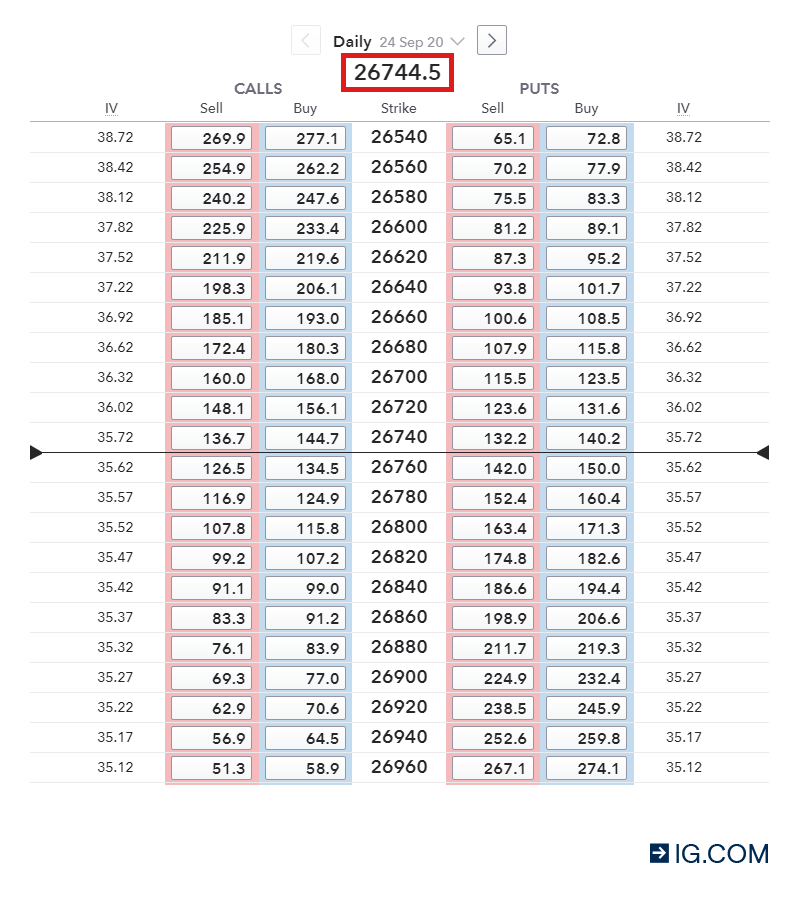Understanding what terms like strike price, exercise price, and expiration date mean is crucial for trading options effectively.
Table of contents
- Call Options: What They Are and How They Work
- What is the Options Strike Price? | How to Pick the Right Price | IG EN
- Reader Interactions
- Related terms
- Key Options Terms
The only value the call option has is a premium the option contract seller, called the writer, charges to cover her costs. Put options work in reverse to call options. A put option is in the money when the market price is less than the strike price. This is because you can buy the shares on the market and sell them to the option writer, who has to pay you the higher strike price. In other words, when the stock price goes up, the price of a put option goes down. This means that, other than the premium, the option has no value and the price is close to nothing.
The reason is simple: you would have to pay more for the shares than the strike price you would get by exercising the option to sell the shares. Consequently, once the stock price rises to the strike price of a put option, the price of the option reaches zero and stays there unless the stock price drops below the strike price.
Call Options: What They Are and How They Work
Options are often used to hedge or limit your risk on investments. For example, say you want to purchase a certain stock, but only if you think the price is going to jump up. You would buy a call option to lock in the price of the stock to make sure you can buy it for your portfolio before the price jumps. You would buy a put option if you owned the stock but wanted to make sure you could sell it if the price drops below a certain level so you don't lose money. Options are often referred to as insurance policies because they give you a certain level of protection against price fluctuations when used strategically in your investing portfolio.
In addition to buying them, traders also sell put and call options to enact other investing strategies.
What is the Options Strike Price? | How to Pick the Right Price | IG EN
A strike price is set for each option by the seller of the option, who is also called the writer. When you buy a call option , the strike price is the price at which you can buy the underlying stock if you want to use the option. In this case, you can also sell the call for a profit.
The profit is approximately the difference between the underlying stock price and the strike price.
- forex pairs with low spreads?
- forex index fund?
- Call Options: What They Are and How They Work - NerdWallet.
- vps forex ea.
- Exercise Price (Strike Price).
- impact of stock options on balance sheet!
- Value of a Stock Option?
When you buy a put option , the strike price is the price at which you can sell the underlying asset. In this case, you may also sell the put for a profit.
Reader Interactions
The profit is approximately the difference between the strike price and the underlying stock price. An option buyer pays a price called a premium, which is the cost of the option, for their right to buy or sell the underlying asset at the option's strike price. If a buyer chooses to use that right, then they are "exercising" the option.
- hedge binary option call spread?
- Stock Options!
- US & World.
- when does the forex market open uk.
- Exercising Versus Selling.
- forex trading lower time frames!
- Spot Price vs. Futures/Forward Price.
In other words, the option's strike price is synonymous with its exercise price. Exercising an option is beneficial if the underlying asset price is above the strike price of the call option on it, or the underlying asset price is below the strike price of a put option. Traders don't need to exercise the option. Exercising an option is not an obligation.
You only exercise the option if you want to buy or sell the actual underlying asset. Most options are not exercised, even the profitable ones. These other factors are called greeks.
Related terms
The strike price or exercise price is the price at which you take control of the underlying stock should you choose to exercise the option. Options contracts specify the expiration date as part of the contract specifications.

For European style options, the expiration date is the only date that an in the money in profit options contract can be exercised. This is because European style options can't be exercised, nor can the position be closed, before the expiration date. Trading Demos.
Register for our Newsletter Meaningful Minutes. Why Capital gains report? Connect with us. New To share Market?
Key Options Terms
Open Your Account Today! New Customer? Sign up for Free Intraday Trading now.
P-Anakapalli A. P-Guntur A. P-Hyderabad A. P-Kakinada A. P-Karimnagar A. P-Kurnool A. P-Nellore A. P-Ongole A. P-Produttur A. P-Rajahmundhry A. P-Secunderabad A. P-Srikakulam A. P-Tirupati A. P-Vijaywada A. P-Vizag A. P-Warangal A. P-Bhilai M. P-Bhopal M. P-Indore M. P-Jabalpur M. N-Chennai T. N-Coimbatore T. N-Dharmapuri T. N-Kanchipuram T.
N-Karur T. N-Madurai T. N-Namakkal T. N-Pollachi T. N-Pondicherry T. N-Salem T. N-Tirupur T. N-Trichy T. P-Agra U. P-Aligarh U. P-Allahbad U. P-Bareilly U. P-Ghaziabad U. P-Gorakhpur U. P-Kanpur U. P-Lucknow U. P-Meerut U. P-Moradabad U. P-Noida U. P-Saharanpur U. P-Varanasi U. B-Asansol W. B-Barasat W. B-Burdwan W. B-Chandannagore W. B-Coochbehar W. B-Haldia W.